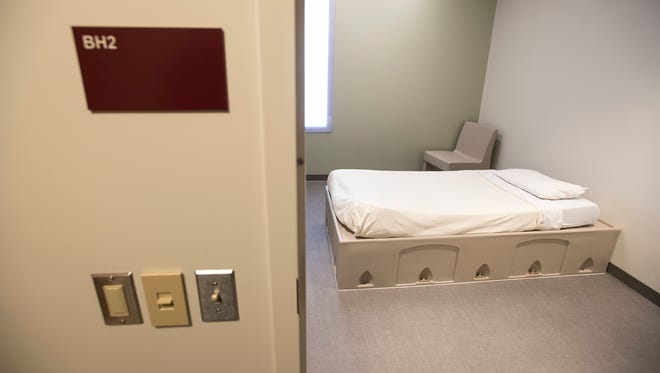Mental health services should be up to doctors, not insurers

“Not medically important.”
With three terms, our insurance plan business unsuccessful us.
Our insurance policy enterprise failed our teenage son and as a consequence, he compensated with his lifetime.
We compensated with unimaginable, endless, all-consuming grief.
On Jan. 11, 2015, our 15-calendar year-aged son, Jake, died by suicide. He died mainly because our insurance coverage business deemed his mental wellness treatment as not medically essential, in immediate contradiction with the assessment of his medical practitioners.
No other relatives must have to expertise the style of decline we have endured.
Court docket ruling supplied required defense
Along with quite a few psychological health and fitness advocates, we rejoiced on Feb. 28, 2019, in reaction to a landmark ruling in just one of the most important health coverage circumstances of the 21st century, Wit v. United Behavioral Wellbeing (UBH).
In the ruling, a judge identified that UBH (the biggest insurance company in the country) was incorrect to use its internally produced requirements for protection in its place of frequently approved scientific criteria. We thought insurance policies firms would ultimately be held accountable to make medical requirement determinations regular with recognized medical benchmarks, alternatively than deny protection based mostly on arbitrary, untransparent, gain-enthusiastic, internally made standards.
Now an appellate court docket panel has set our tough-won gains in peril. Its final decision should not stand.
Psychological well being:Why a lot more than 100 psychiatric beds closed
The trial court docket ruling in The Wit v. UBH was an tremendous gain for people in search of psychological health treatment method – and it would have compelled insurers to improve their techniques for the much better. People adjustments would have aided Jake.
Outpatient solutions weren’t supporting Jake
Jake was hospitalized 2 times in 1 thirty day period for suicidal ideation.
Through his first hospitalization, he spent 5 days in the hospital in advance of currently being admitted to an outpatient plan as necessary by our coverage company. The program was not thriving. He was hospitalized once more wherever he was held for an additional five times.
We realized he was not all set to come property, and his medical doctors agreed. Not only did our coverage enterprise disagree, citing health-related requirement, they insisted he return to the exact outpatient software he already failed at.
Despite our advocacy, and that of his medical doctors, our coverage business was adamant that he would have to are unsuccessful at the outpatient treatment method application yet again ahead of he could shift to an inpatient plan.
We implored them to rethink but all they could provide was an appeal. We were in crisis as much as Jake, but we settled to file the attractiveness.
We been given an too much to handle packet of papers in the mail and experienced no concept what to do and where to start. There was so significantly info essential and details we could not offer. Our son’s everyday living was distilled into a bunch of healthcare codes we did not have an understanding of.
A lot less than 3 months later on, he accomplished suicide.
Revisit this ruling so other family members are not at hazard
The professional medical requirement standards employed by insurance plan firms is steeped in stigma and disparity instead than scientific guidelines. If Jake had a cardiac problem and his doctors thought his heart was not strong enough for him to appear dwelling, they would have stored him in the medical center. Why was this any diverse? Due to the fact he experienced a mental sickness.
Soon in advance of his 15th birthday, in October, they released him, and by Jan. 11, he was absent.
The Wit v. UBH ruling that at the time introduced us some hope for modify was inexplicably reversed by 3 judges in the 9th Circuit Court of Appeals, which consists of Arizona. I am unmoored by this alarming and unconscionable transform, which will embolden insurers to make conclusions according to their individual logic and out of step with clinical criteria.
The Wit ruling as it stands indicates that individuals who need to have care won’t obtain it. Jake’s doctors realized he necessary inpatient treatment. They realized the severity of his suicidality and that outpatient treatment was not operating.
Still, insurance coverage overruled the clinical professionals who understood our son’s severe situation. They didn’t spend for medically necessary therapy, but we did.
We paid the final rate.
There is even now time for the judges of the 9th Circuit to revisit this circumstance. It is urgently wanted. If it is remaining unaddressed, millions of People in america who are trying to find obtain to procedure could not uncover it when they need it most.
Denise Schatt-Denslow is govt director and co-founder of The JEM Foundation, which seeks to protect against youth suicide. She and her partner, Ben Denslow, also made the Arizona Coalition for Insurance Parity, whose concentrate is to enact laws to make certain that wellbeing insurance businesses simply cannot discriminate among physical health and psychological wellness. Arrive at her at [email protected].





